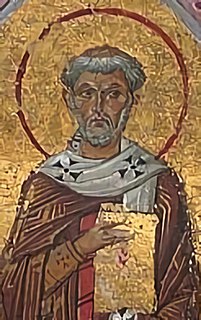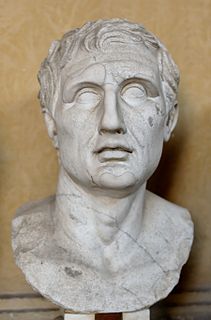A Quote by A. C. Bradley
A total reverse of fortune, coming unawares upon a man who 'stood in high degree,' happy and apparently secure,-such was the tragic fact to the mediaeval mind. It appealed strongly to common human sympathy and pity; it startled also another feeling, that of fear. It frightened men and awed them. It made them feel that man is blind and helpless, the plaything of an inscrutable power, called by the name of Fortune or some other name,-a power which appears to smile on him for a little, and then on a sudden strikes him down in his pride.
Quote Topics
Also
Another
Apparently
Appears
Blind
Coming
Common
Degree
Down
Fact
Fear
Feel
Feeling
Fortune
Frightened
Happy
Helpless
High
Him
His
Human
Inscrutable
Little
Made
Man
Men
Mind
Name
Other
Pity
Power
Pride
Reverse
Secure
Smile
Some
Startled
Stood
Strikes
Strongly
Sudden
Sympathy
Them
Then
Total
Tragic
Which
Related Quotes
We humans have had from time unknown the compulsion to name things and thus to be able to deal with them. The name we give to something shapes our attitude toward it. And in ancient thought the name itself has power, so that to know someone's name is to have a certain power over him. And in some societies, as you know, there was a public name and a real or secret name, which would not be revealed to others.
Will power is nothing but another name of ego power. A man of wisdom has no will, just as he has no mind - because to will means to keep yourself separate from existence. It is a little subtle, but try to feel it. The moment you will it means you are always willing against things as they are. You want them to be some other way.
What a man does, that he has. What has he to do with hope or fear? In himself is his might. Let him regard no good as solid but that which is in his nature, and which must grow out of him as long as he exists. The goods of fortune may come and go like summer leaves; let him scatter them on every wind as the momentary signs of his infinite productiveness.
Genial manners are good, and power of accommodation to any circumstance, but the high prize of life, the crowning fortune of a man is to be born with a bias to some pursuit, which finds him in employment and happiness, -- whether it be to make baskets, or broadswords, or canals, or statutes, or songs. I doubt not this was the meaning of Socrates, when he pronounced artists the only truly wise, as being actually, not apparently so.
Those who merely possess the goods of fortune may be haughty and insolent; . . . they try to imitate the great-souled man without being really like him, and only copy him in what they can, reproducing his contempt for others but not his virtuous conduct. For the great-souled man is justified in despising other people - his estimates are correct; but most proud men have no good ground for their pride.
It is not enough to know the Son of God in the Father's nature only, unless we acknowledge Him in what is ours without withdrawal of what is His own. For that self-emptying, which He underwent for man's restoration, was the dispensation of compassion, not the loss of power. For, though by the eternal purpose of God there was 'no other name under heaven given to men whereby they must be saved' (Acts 4:12), the Invisible made His substance visible, the Intemporal temporal, the Impassable passable: not that power might sink into weakness, but that weakness might pass into indestructible power.
The most part of men, though they have the use of reasoning a little way, as in numbering to some degree; yet it serves them to little use in common life; in which they govern themselves, some better, some worse, according to their differences of experience, quickness of memory, and inclinations to several ends; but specially according to good or evil fortune, and the errors of one another.
All I desire is, that my poverty may not be a burden to myself, or make me so to others; and that is the best state of fortune that is neither directly necessitous nor far from it. A mediocrity of fortune, with gentleness of mind, will preserve us from fear or envy; which is a desirable condition; for no man wants power to do mischief.
When a jealous person sees signs of other people's success and good fortune, his heart is pierced with envy. But someone who has learned to rejoice in the good fortune of others experiences only happiness. Seeing another person's beautiful house or attractive partner immediately makes him happy - the fact that they are not his own is irrelevant.
Latent in every man is a venom of amazing bitterness, a black resentment; something that curses and loathes life, a feeling of being trapped, of having trusted and been fooled, of being helpless prey to impotent rage, blind surrender, the victim of a savage, ruthless power that gives and takes away, enlists a man, drops him, promises and betrays, and -crowning injury- inflicts on him the humiliation of feeling sorry for himself.
Is it any wonder the power this man held over me - this man who did not run from his demons like most of us do, but embraced them as his own, clutching them to his heart in a choke-hold grip. He did not try to escape them by denying them or drugging them or bargaining with them. He met them where they lived, in the secret place most of us keep hidden. Warthrop was Warthrop down to the marrow of his bones, for his demons defined him; they breathed the breath of life into him; and without them, he would go down, as most of us do, into the purgatorial fog of a life unrealized.
































